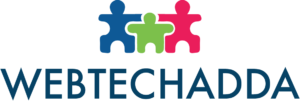It seems like everything is moving to the cloud these days. With that comes the need to protect the sensitive and important information stored there.
Cloud security automation will be one of the keys to protecting your cloud systems. With automated IaC security tools, businesses can protect against many of the most common threats. It can monitor users to detect suspicious activity, prevent the accidental loss of critical resources and guard against many of the most common attacks. Some of these systems can even scan the code for misconfigurations that could leave your data exposed.
This is all the more important with one report showing that 94% of enterprises already use at least one cloud service. Most businesses are also looking to migrate more of their workflows to the cloud.
Businesses are choosing cloud services for good reasons. Cloud computing can make resources more accessible, reduce IT costs, offer greater flexibility and it is a more scalable way to manage your infrastructure.
As beneficial as cloud computing can be, it does come with a new range of concerns. While it can help to alleviate some security concerns, it can give rise to concerns that would not exist with conventional IT infrastructure.
With more companies moving more workflows to the cloud, it means that cloud security is a vital concern for modern businesses.
Threats to Cloud Infrastructure
There is no doubt that cloud computing has a lot to offer businesses. With that said, it comes with a new range of security concerns. A failure to consider and prepare for these concerns can be a serious failure on the part of a business leader.
Data breaches happen to get a lot of publicity. When sensitive data is either leaked or breached, it can be a disaster for the organization. The average data breach costs millions of dollars and it can also come with significant reputational damage.
Beyond events like data breaches or data loss, businesses can be attacked by criminals who want to disrupt their services. One common way they might do that is through a DoS attack. If key systems are down as the result of an attack, you could lose value as a result of lost productivity or it could cut customers off from services they rely on.
These are just a few of the issues a business may face when they move resources to the cloud. Whatever the issue may be, there are cloud security practices and tools that can protect against them. You just need to understand the threats and how they might affect your company.
Cost Reduction
Cloud security can be a measure to reduce costs. With all the resources in the cloud, much of the security will be provided by the cloud provider. Not only that, but you also have a range of cloud-based tools that can help you manage security in ways that are more efficient. Since much of cloud security can be automated, it requires less time from human IT professionals to maintain.
Easier to Manage and Monitor
When you bring all of your workflows and data to the cloud, it can make systems easier to manage and monitor. With everything centralized in the cloud, you can manage resources from one dashboard. You also have all of the traffic and activity going through the system. That can make it easier for your security tools to monitor and analyze activity to detect threats.
Faster Response Time
The faster you can detect and respond to a threat, the easier it will be to limit the damage. With automated cloud security, threats can be detected faster and the system can deploy a response immediately. This is much better than having to wait for human intervention in the event of an attack.
Moving to the cloud is a smart move for most businesses. You just need to understand the threats that are out there and deploy the appropriate cloud security tools. In many cases, these automated tools can do much of the work for your IT team so they can focus on other matters.







